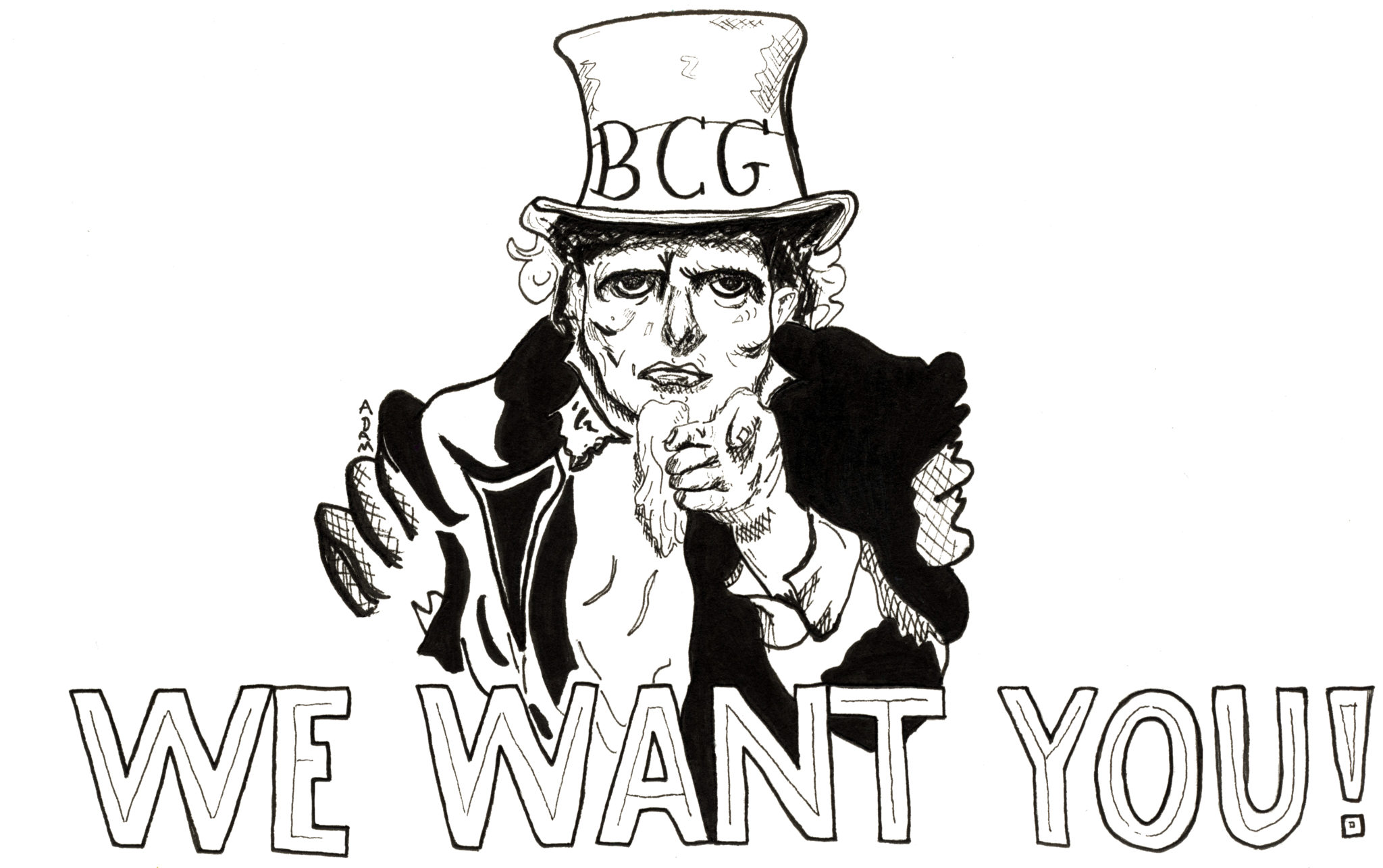
Jack Adam
What does it mean to “make it?” For the aspiring politicians among us, I imagine that it would mean holding political office; for the writers, it would mean being published in The Atlantic or The New Yorker or some other famous publication. But for many of my fellow Latinx students, “making it” means achieving financial security, financial success. Really, though, it’s more than that — oftentimes, “making it” means doing better than our parents ever did, better than they ever could have done. For us, to make it in America is to realize the American Dream, that which so many of our ancestors worked toward, that which we now have within our grasp.
Making it, then, is inextricably linked to making money. Once upon a time, money was a bad thing. “Truly I tell you, it is difficult for a rich man to enter the kingdom of heaven. Again I tell you, it is easier for a camel to pass through the eye of a needle than for a rich man to enter the kingdom of God,” Jesus said. The Buddha, a prince who had it all, could only achieve enlightenment by renouncing it all. Ebenezer Scrooge only became a kinder, gentler man after being shown the error of his money-obsessed ways.
But today, to reference Lana Del Rey, Gordon Gekko and Donald Trump, respectively, “Money is the anthem, of success,” “Greed is good” and a man who characterizes a loan of a million dollars as small is president. This fascination with wealth is true for people in general, but is particularly true for those who don’t have very much of it in the first place. In America, those people usually just happen to be black and brown. With that lack of wealth comes a history of oppression and exclusion, one that we often know all too well. Our struggle for wealth, then, isn’t just one born out of a desire to be successful — it is a struggle to be accepted by the country that has refused to accept us throughout the entirety of its history.
But what is the cost of this struggle for acceptance? More importantly, what’s the cost of actually achieving acceptance — or a semblance of acceptance?
To me, it amounts to a kind of deal with the literal and figurative devil: pursuing a career on Wall Street and its associated worlds, is a career that inevitably capitalizes on the suffering of others, a career that, at one point or another, might have capitalized on the suffering of our own communities. Companies like Bain & Company, Boston Consulting Group, McKinsey & Company, and associated acts, all extend a gnarled hand, usually under the guise of diversity and inclusion. We, the willing and able, are more than ready to take the hand if it means prosperity, success, acceptance, which it so often does — or at least, we think it does.
We shouldn’t be so judgemental, especially given the fact that for so many among us, consulting and finance are the quickest way out of truly dire situations. But the other day, I was talking to a friend who I hadn’t seen in a while. Of course, the conversation inevitably turned to consulting and finance, topics on many juniors’ minds. His eyes lit up with excitement as he regaled me with the tale of a friend who had come from nothing and was now working as an associate at Blackstone. “He’s living the American dream, man!” I smiled and thought to myself: “I guess the American dream is getting to the point where you’re no longer being screwed, but instead are the one doing the screwing.”
I think the fundamental issue is that as much as we might try to believe that these institutions won’t change who we are, they do. They will. Even if at first, we “wear a mask,” we’re forced to wear the mask for so long that it becomes indistinguishable from our face. When we’re forced to present a certain way, to value certain things, to maintain certain attitudes for the good of the company, we become people who, in fact, present, value and think the way that we were once only pretending to be. We become that which we swore we never would. Perhaps you didn’t swear it, but in that case, I’m not sure what’s more concerning.
Adrian Rivera | adrian.rivera@yale.edu .







